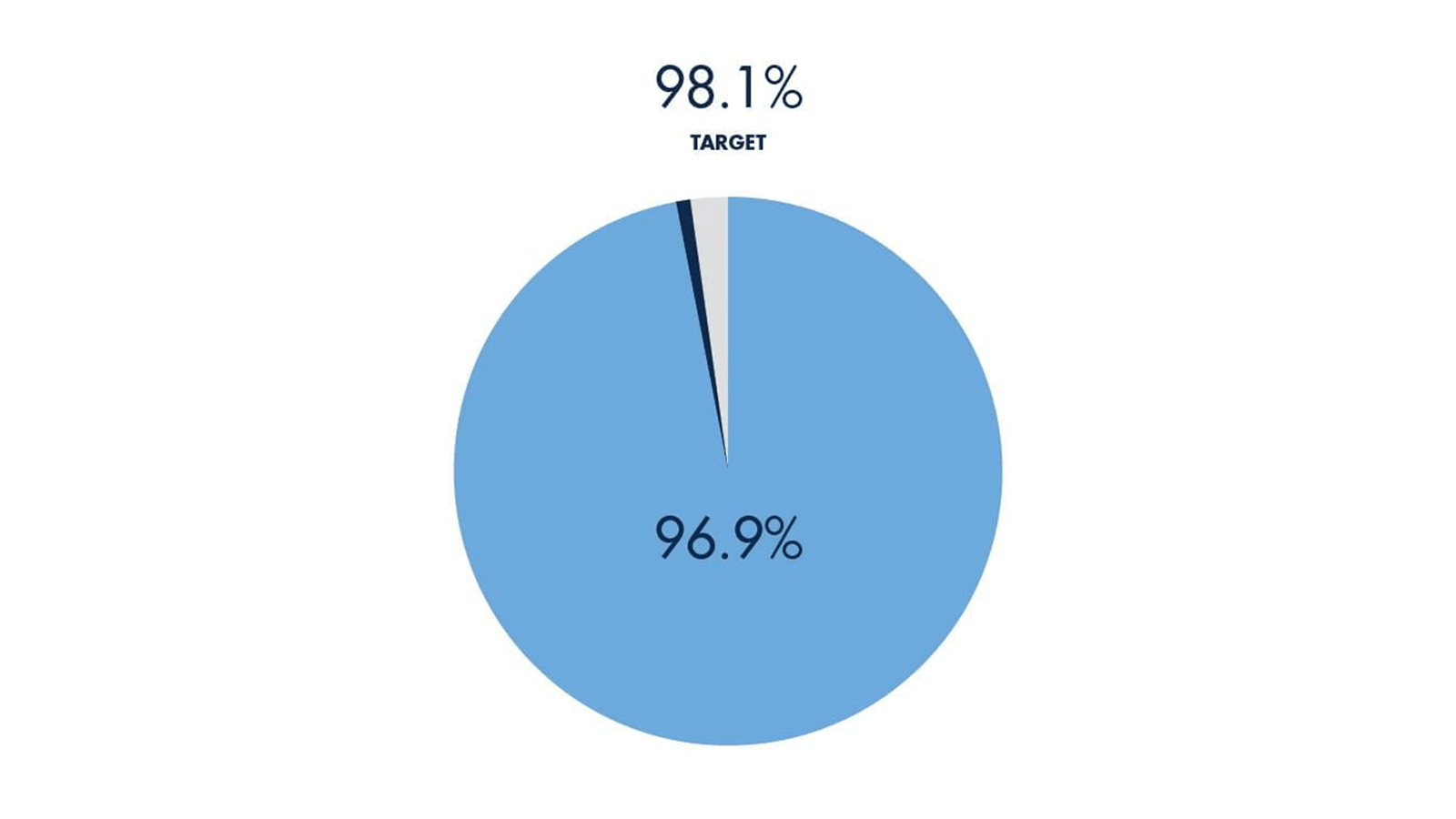Adaptable Curricula
Set the Standard for Cutting Edge, Adaptable Curricula
Rapidly develop and deliver agile curricula to partners and individuals of diverse backgrounds and ages that are responsive to market demands and the needs of a global society.
Goal: Achieve 98.1% job placement rate one year after graduation for bachelor's students by 2030

As of 2023, 96.9% of Drexel University undergraduates are working or enrolled in graduate or professional education one year after graduation. Through the Adaptable Curricula imperative, our goal is to achieve 98.1% job placement rate by 2030 which exemplifies that Drexel graduates are prepared and qualified for the future world of work and highly sought after by institutions and employers alike.
Source: University one-year out outcomes survey, bachelor's, 2023, Tableau
Initiatives
Drexel University is taking strategic steps to strengthen and define the University’s future, enabling us to deliver on our mission of providing a high-quality experiential education and advancing research-based solutions for communities and organizations. This plan entails:
- Restructuring our schools and colleges into integrated, forward-looking pillars of expertise;
- Transitioning to a semester calendar for all programs to support enhanced recruitment, retention and partnership;
- Defining and implementing core competencies, supporting pedagogical innovation and redesigning our curriculum to continually improve the quality of our programs and support student learning and outcomes;
- And working to develop greater consistency in practices and policies across academic units to support flexibility and collaboration.
- Drexel is enhancing its program performance review process by defining a set of standard data metrics that will be used consistently across the University for program initiation, revision, and assessment and will help create a platform more program and curricular innovation. The university is also launching a new program approval process that will ensure new programs align Drexel strengths with market opportunities and with Drexel's strategic vision.
- Drexel reports Financial Value Transparency (FVT) and Gainful Employment (GE) data to the National Student Loan Data System (NSLDS®) to help students and their families make more informed decisions about financing their education and potential outcomes.
In addition to transforming academic curricula, Drexel is re-envisioning curricula in collaboration with key strategic partners in industry, academia, government, and healthcare to support the education and training of diverse and talented students. A sampling of initiatives include:
- The cell and gene therapy job market in the Philadelphia region is projected to grow by as much as 94% over the next 10 years. As a result, Drexel launched the Cell and Gene Therapy Technology, Engineering, Analytics, Manufacturing & Science program which provides undergraduate and graduate students with a comprehensive knowledge base encompassing cell and gene manufacturing, regulatory requirements, analytical techniques, immune engineering, genomics and informatics and more.
- The College of Computing and Informatics’ Corporate Partners Program bolsters the development, recruitment and retention of top tech talent, including for global media and technology company, Comcast.
- The College of Engineering, through its Academic Industry Partnerships, is helping develop talent at Baltimore Gas & Electric (BGE), a subsidiary of Exelon Corporation, through the Power Systems Engineering Graduate Certificate program.
- Drexel University’s merger with Salus University offers both Drexel and Salus students exciting opportunities in graduate health sciences, significantly enhancing our commitment to preparing future interprofessional health practitioners.
As a result of recommendations from the Program and Curricular Innovation initiative team of Drexel 2030 Strategic Plan Implementation, the Council for Innovation in Teaching and Learning (CITL) was established to build greater strategic alignment across initiatives and promote inclusive, evidence-based practices that build upon Drexel’s distinguishing strengths to better meet the developmental needs of faculty and learning needs of students. The council draws together Drexel’s diverse expertise and resources to collaboratively advance pedagogical and curricular excellence and innovation across the university. A key initiative of the council, in collaboration with the Undergraduate Student Government Association (USGA), is to create a mechanism by which academic units can share standard course syllabi to allow students to make more informed decisions about course selection.

